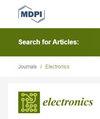Challenges in Information Systems Curricula: Effectiveness of Systems Application Products in Data Processing Learning in Higher Education through a Technological, Organizational and Environmental Framework
IF 2.6
3区 工程技术
Q2 COMPUTER SCIENCE, INFORMATION SYSTEMS
引用次数: 0
Abstract
Higher education institutions are increasingly concerned with providing students with sustainable education by developing the necessary competencies for various roles in the business environment. To be more effective, courses must develop technological, organizational and environmental (TOE) competencies in an integrated manner. SAP is a tool that yields this possibility through the diversity of IT solutions by ensuring a significant increase in employability rates. Learning SAP is a competitive advantage because it helps with all aspects of digital transformation within the concept of Industry 4.0. Our research aims to investigate to what extent students perceive that they have acquired the knowledge and competencies specific to the three dimensions of the TOE framework within the SAP course. We have added a fourth dimension to the TOE framework: the learning context (L) considering the impact of the educational environment on perceived learning outcomes. Data collection was based on a questionnaire distributed to students enrolled in the SAP course in the academic year 2023–2024 at Bucharest University of Economic Studies (BUES). The data were processed using correlation and regression analysis. Reconfiguring the content elements of SAP courses based on the TOE framework would ensure greater effectiveness in the learning process.信息系统课程的挑战:从技术、组织和环境框架看高等教育数据处理学习中系统应用产品的有效性
高等教育机构越来越关注通过培养学生在商业环境中扮演各种角色所需的能力,为学生提供可持续教育。为了提高效率,课程必须以综合方式培养技术、组织和环境(TOE)能力。SAP 是一种工具,可通过信息技术解决方案的多样性实现这种可能性,确保显著提高就业率。学习 SAP 是一种竞争优势,因为它有助于实现工业 4.0 概念中数字化转型的各个方面。我们的研究旨在调查学生在多大程度上认为他们已经掌握了 SAP 课程中 TOE 框架三个维度所特有的知识和能力。考虑到教育环境对感知学习成果的影响,我们在 TOE 框架中增加了第四个维度:学习环境(L)。数据收集基于向布加勒斯特经济研究大学(BUES)2023-2024 学年 SAP 课程学生发放的调查问卷。数据处理采用了相关分析和回归分析。根据 TOE 框架重新配置 SAP 课程的内容要素将确保学习过程更加有效。
本文章由计算机程序翻译,如有差异,请以英文原文为准。
求助全文
约1分钟内获得全文
求助全文
来源期刊

Electronics
Computer Science-Computer Networks and Communications
CiteScore
1.10
自引率
10.30%
发文量
3515
审稿时长
16.71 days
期刊介绍:
Electronics (ISSN 2079-9292; CODEN: ELECGJ) is an international, open access journal on the science of electronics and its applications published quarterly online by MDPI.
 求助内容:
求助内容: 应助结果提醒方式:
应助结果提醒方式:


